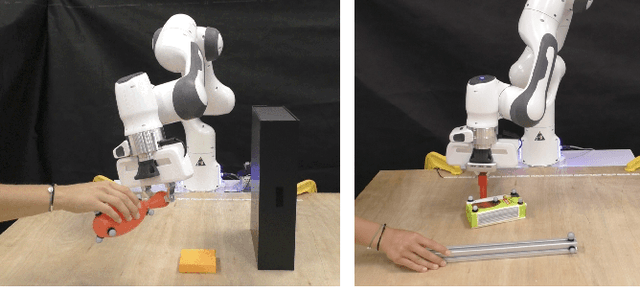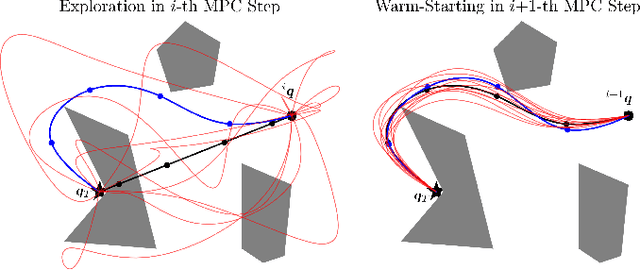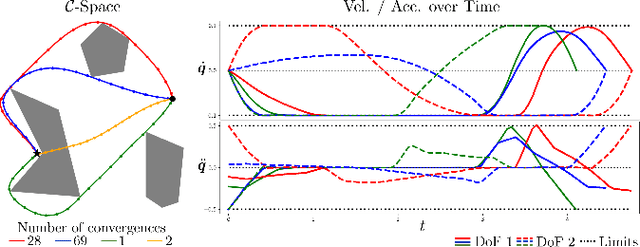VP-STO: Via-point-based Stochastic Trajectory Optimization for Reactive Robot Behavior
Paper and Code
Oct 08, 2022



Achieving reactive robot behavior in complex dynamic environments is still challenging as it relies on being able to solve trajectory optimization problems quickly enough, such that we can replan the future motion at frequencies which are sufficiently high for the task at hand. We argue that current limitations in Model Predictive Control (MPC) for robot manipulators arise from inefficient, high-dimensional trajectory representations and the negligence of time-optimality in the trajectory optimization process. Therefore, we propose a motion optimization framework that optimizes jointly over space and time, generating smooth and timing-optimal robot trajectories in joint-space. While being task-agnostic, our formulation can incorporate additional task-specific requirements, such as collision avoidance, and yet maintain real-time control rates, demonstrated in simulation and real-world robot experiments on closed-loop manipulation.
 Add to Chrome
Add to Chrome Add to Firefox
Add to Firefox Add to Edge
Add to Edge